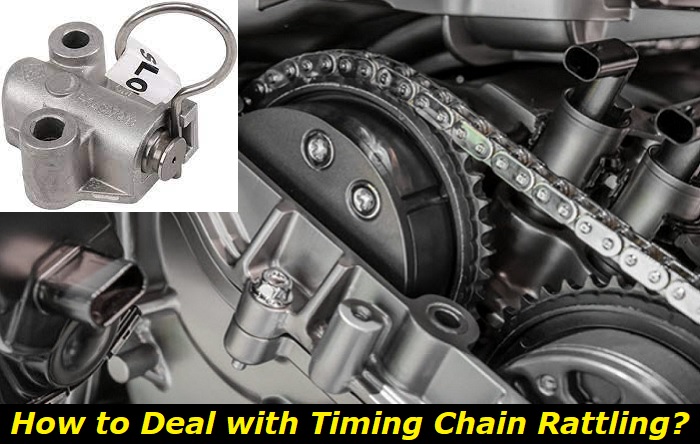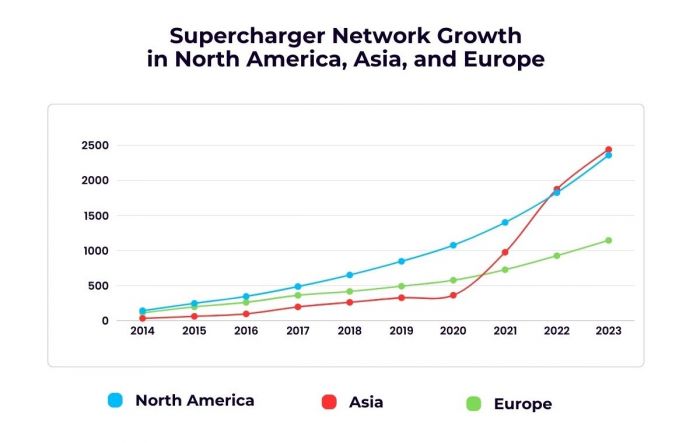Engines need perfect timing for optimal work. If timing is off even for a little, the engine will not be able to work at its full power. Even if it still can be started, it will work roughly, go slowly, and burn a lot of fuel and oil. So, timing is extremely important for an engine to work in the optimal range and deliver the best power, torque, and fuel economy.
Engine timing issues highlights
- Level of importance:High
- Commonreasons:Age, mileage, internal engine problems
- DIY inspection:Impossible
- DIY repair:Impossible
- Price for repair:$550 - $1,000
- Can you drive?In most cases, no
- Ways to fix:Replacement of affected parts

Why do timing chains make a rattling noise after some time?
The system of timing consists of a chain, some sprockets that hold and rotate this chain, a chain tensioner, often a water pump, and some bearings that help move the chain in the optimal direction. The system is not very complicated but it can fail, unfortunately. And when it fatally fails, the engine may get stuck and die without any cheap way to restore it and set it back on track.
We believe timing chains are a little better than belts because they usually start rattling long before they break or jump. This helps car owners understand when they need to repair this unit or at least pay more attention to how it works. The belt can just break and leave you with a badly broken engine.
Well, here's why a timing chain makes a rattling noise:
- over time, chains stretch a little and this provides them with the opportunity to be louder than they usually are;
- when a chain is stretched, it can hit the plastic shoe that is used to direct it in the timing system;
- also, the stretched chain will hit other parts of the engine including metal parts and this will sometimes create bad rattling;
- when the chain is cold, it can be OK, but after warming up, it may start rattling because after this it stretches even more;
- of course, the tensioner is there to help solve this problem and rattling can only occur when the tensioner is no longer capable of keeping the chain in optimal condition;
- when the chain is too stretched, it can just jump and change its position which will have bad consequences for the engine.
Unfortunately, nearly all modern engines will be severely damaged once the chain breaks or jumps. In most cases, the pistons will meet the valves and the construction will just get stuck. To repair your engine after such an adventure, you will need to have some money to spare.
Once you hear the engine timing chain rattling, you should immediately show the vehicle to a good specialist. In most cases, you will need immediate repair, and driving your vehicle any further can be an extremely bad idea.
How long do timing chains usually last?
Well, there is no average rule on the life expectancy of timing chains. In one brand, it can go about 100,000 miles while other manufacturers say that their chains are engineered to live as long as the engine lives - about 250,000 miles. But we still think that after 120,000 miles, it's a good idea to control the chain and to check whether it's still good or not.
Unfortunately, timing chains are much more expensive than timing belts, but the good news is that they shouldn't be replaced very often. Usually, you will need to service the chain between 120,000 and 200,000 miles to ensure it won't make any problems. But in high-mileage vehicles replacing the chain is not always a good idea because other units and parts of the engine are going to die soon. So, investing in such a vehicle is not always right.
Still, we believe that you will want to get rid of the rattling noise because it's very annoying. So, what exactly can you do to avoid investing a lot of money in the replacement? We know some methods!
How can you get rid of the rattling noise?
Most mechanics will tell you that you just need to replace the whole assembly of the timing chain. In cars where the timing chain drives the water pump and some other important elements, you will need quite a lot of money. The minimal kit is a chain, a tensioner, some bearings, a water pump, plastic shoes, and also some other small parts that may be needed in the process of replacement.
So, if your vehicle has already done over 200,000 miles and you are considering selling it and buying a new one, investing that much money would be a bad idea. What can you do instead? A couple of things:
- First of all, you should make your mechanic check the tensioner. It's a very common part that may fail and cause rattling of the timing chain. The tensioner can be replaced for much less money than the whole kit.
- Also, have a look at the water pump. It may be that the pump is defective and its shaft is just loose and vibrating when in operation. The rattling may come from this part, not from the chain itself.
- One more thing to check is one of the plastic shoes that direct the chain. Sometimes, they just break down and start rattling heavily. Replacing them is probably the cheapest thing you can do with your timing system.
- Bearings and sprockets should also be checked. If you notice a broken sprocket, this is the most obvious reason why the engine is rattling all the time. Replacing one sprocket is much easier than replacing all the kit.
So, what you need to do is to check the system and find out why the rattling sound appears. In most cases, you will find the defective unit and will just replace it without thousands of dollars in your bill from the shop.
But don't open the beer right now. Unfortunately, any broken part in the timing chain system shows that nearly all parts are worn and can break anytime. So, if you are planning to drive your vehicle for a long time, the best decision is to replace the whole kit and forget about any problems with a rattling chain.
How much is it to replace a timing chain in a car?
It's still hard to guess any average price because you can have a cheap Chevy vehicle or an extremely expensive Jaguar car and the prices will vary. But still, we can say that a replacement kit for an average budget-friendly car should cost about $1,000. For a luxury model, the price of a replacement kit may cost over $4,000.
The cost of labor depends on the chosen shop. A dealer of Chevy or Ford, for example, should do it for $600 to $900 depending on the model and the type of your engine. The mechanic in a small shop should take $300 to $500 from you.
How long can you drive with a rattling timing chain?
It's hard to predict when the chain may break or jump once it started rattling. This can happen in 1 mile or in 20,000 miles. The explanation is simple - you never know what went wrong. If it's all about a slightly stretched chain, then nothing to worry about. Such a chain can go more miles with no problems.
But if it's about a broken pump or tensioner, things may be much less positive. The chain may suddenly break at any moment.
Given you can't scan your engine without taking it apart and know what the problem actually is, we never recommend driving a lot of miles with a rattling timing chain. The best thing you can do is to stop a vehicle and call a tow truck. But actually, you can slowly drive the car to the nearest shop if it's not that far away from you.
Final words
We can't say for sure whether you can drive with a rattling chain or not. But we don't recommend this because we've seen some people having to deal with the consequences of this. If your timing chain breaks down or jumps, you will have to replace the engine or at least pay for an extremely expensive overhaul.
About the authors
The CarAraC research team is composed of seasoned auto mechanics and automotive industry professionals, including individuals with advanced degrees and certifications in their field. Our team members boast prestigious credentials, reflecting their extensive knowledge and skills. These qualifications include: IMI: Institute of the Motor Industry, ASE-Certified Master Automobile Technicians; Coventry University, Graduate of MA in Automotive Journalism; Politecnico di Torino, Italy, MS Automotive Engineering; Ss. Cyril and Methodius University in Skopje, Mechanical University in Skopje; TOC Automotive College; DHA Suffa University, Department of Mechanical Engineering






Add comment